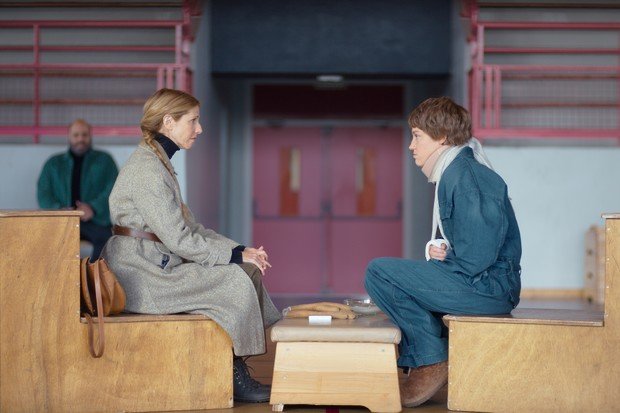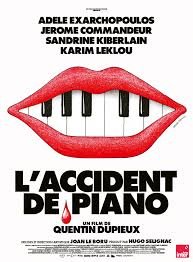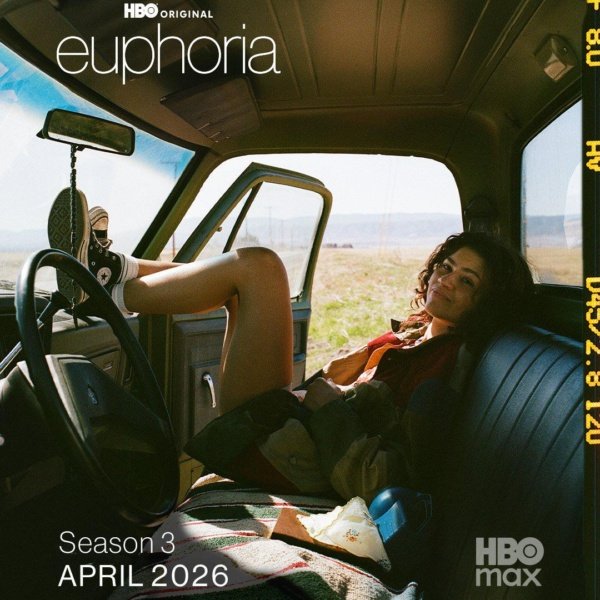THE PIANO ACCIDENT
Genre: Dark Comedy, Comedy
Directed By: Quentin Dupieux
Starring: Adele Exarchopoulos, Jerome Commandeur, Sandrine Kiberlain
Release Date: TBD (Fantastic Fest 2025 Showing)
Platform: Theaters
Star Rating: 4/5
By Karl Simpson Jr.
“It’s a scathing critique of how performance, pain, and humiliation become consumable content.”
THE PIANO ACCIDENTis an unsettling, intimate, and quietly devastating film that sneaks up on you. Directed with confidence and restraint, it follows Magalie, a famous social media influencer, retreating to a chalet in the mountains after a tragedy disrupts her latest video shoot. On the surface, it’s a slow-burn mystery, but what really makes it stick is how it digs beneath the spectacle of online fame to expose something raw, ugly, and vulnerable.

From the start, the film moves with a steady, deliberate rhythm. It doesn’t rush to get where it’s going, but it never drags either. That balance keeps you hooked, pulling you with an air of tension that never lets up. The pacing feels methodical, almost surgical, with each scene unfolding like another layer being peeled back. The atmosphere is thick with unease, and while the “accident” sits at the center, the story is far more interested in what drives people to spectacle, and why they can’t let go, even when it’s toxic.
The cast grounds the film beautifully, leaning into the darker edges and the surprising humanity at its core. The performances never feel exaggerated; instead, they find truth in restraint. Humor slips in at just the right times, breaking tension and giving the heavier beats room to breathe. What impressed me most was the film’s consistency. It doesn’t overreach or try to shock for the sake of it. Instead, it trusts its clarity of vision, walking the line between horror and vulnerability in a natural and haunting way.

At its heart, THE PIANO ACCIDENTis less about a single influencer and more about the culture that enables her. It’s a scathing critique of how performance, pain, and humiliation become consumable content. The journalist character functions as both mirror and instigator, poking at the “why” behind Magalie’s choices, until the façade begins to crumble. What emerges is not a story of redemption, but of exposure; of the emptiness that follows when performance becomes the only form of identity. The accident becomes almost secondary; what really horrifies is the slow unraveling of someone who knows how destructive the cycle is but still can’t stop.
The ending hits hard because it refuses to offer a neat resolution. There’s no triumphant redemption, no sweeping condemnation; just the inevitable collapse when the machinery of fame and spectatorship runs out of fuel. What lingers is the film’s sharp indictment of us, the audience. It’s not just about Magalie’s downfall; it’s about the coldness of a culture that treats suffering as content and then discards people the moment the show ends. That quiet turn, away from individual tragedy and toward collective complicity, makes it truly unsettling.

THE PIANO ACCIDENTis a steady, engaging, and impactful film. With its deliberate pacing, strong performances, and unflinching critique of online culture, it manages to be both disturbing and vulnerable simultaneously. It’s not flashy and doesn’t chase cheap thrills, but it knows exactly what story it wants to tell and delivers it confidently. For viewers curious about what happens when spectacle, self-destruction, and spectatorship collide, THE PIANO ACCIDENToffers a chilling and thought-provoking experience that will stay with you.



